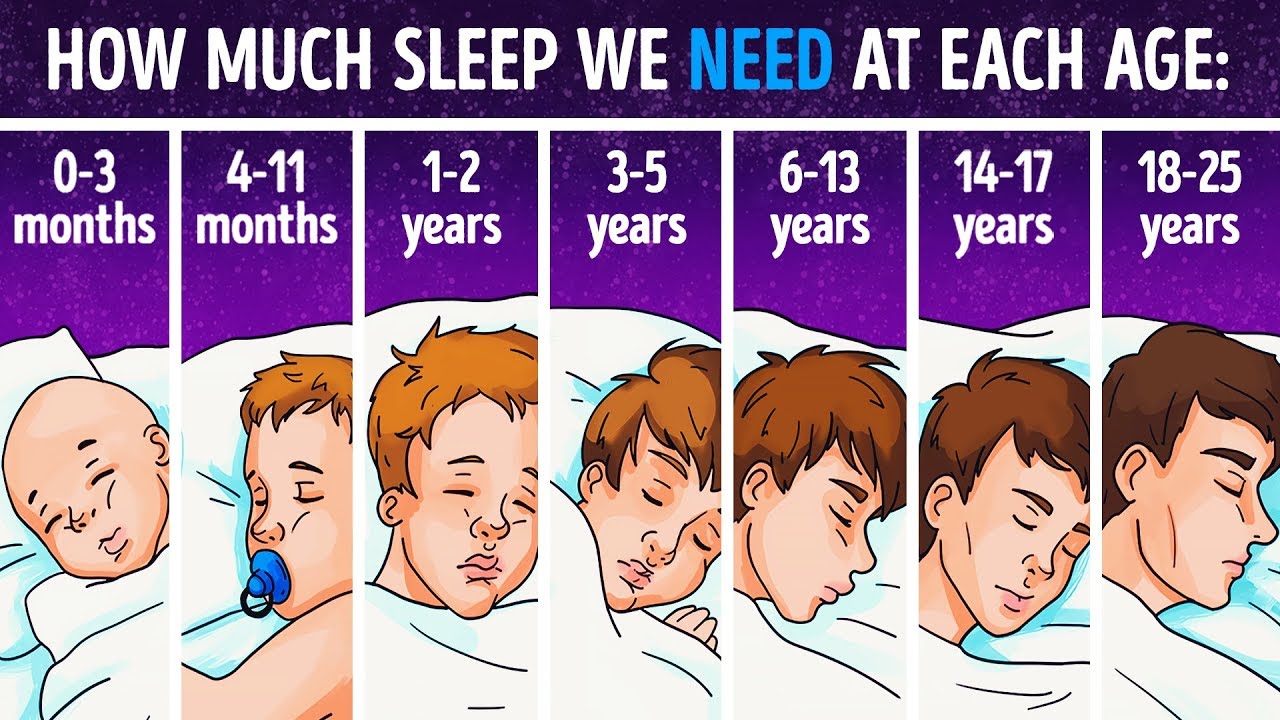Sleeping is fundamental in maintaining the soundness of an individual’s health, however, for some people being able to get enough shut eye is quite the fac
Finding out the stems for sleep deprivation and figuring out the age at which the cross over of correct sleep requirements takes place will ensure that one has sleep patterns that are not only consistent but healthy too.
Little Kids
Sleep Requirements Of Babies can sometimes require upto 17 hours in a day, and this includes taking some naps as well. Newborns are said to have high levels of sleep pressure, this is an integrated function that gets triggered by growth, circadian and food in early children in comparison to adults. Napping will eventually solve this.
Children ages 1 to 3 typically sleep over 11 hours a day. This includes naptimes which are said to last anywhere from 1 to 3 hours depending on the child’s age and sleep requirements; kids above the age of 3 generally sleep longer during the night and take less naps. As a part of their growth development, kids are able to maintain higher energy levels as well as easily learn new skills.
Children who reach preschool age will need about 10 to 13 hours of sleep a night and will be able to do so when they get to this age range meaning that majority of children will need an afternoon nap as well, however their frequency on long naps will decrease as the age increases to 5.
The sleep needs of children usually only shift to the smallest extent as they start attending school. Typically, parents support this shift by putting children to bed on a regular basis, and constructing an effective sleeping routine. Parents must encourage their children to be physically active during the day.
During the teenage years, sleep becomes a critical need for proper growth and development. This is the stage where the body starts releasing sex hormones. The absence of such sleep affects the energy levels of a person and their thinking throughout the day.
Adolescents need around nine to ten hours of sleep a day but due to their school start times, use of social media and a packed schedule, their sleep cycles tend to get disrupted. Summer holiday conflicting travel schedules, sleep deprivation and something common teenage attitudes towards driving, which lead to an increase in the number of car accidents.
Ultimately this leads to older teenagers who feel tired earlier on in the day to have to deal with poor schooling arrangements that do not cater for natural changes in bedtime. The combination of these issues leads to a national phenomenon amongst teenagers of not getting enough sleep that leaves them not mentally recharged enough.
A deficient quantity of sleep can be detrimental to a teenager’s ability to focus, thus potentially impairing his or her academic achievements. Moreover, the lack of rest causes sudden changes in mood resulting in moodiness or a tendency to get easily annoyed at home and school which destroys relationships further.
Teach your teen to go to bed and get up at the same hour each day, and get them into the habit of having a fixed sleep cycle. You can help them nurture a calming bedroom atmosphere by keeping it cool, dark, and quiet, and avoiding stimulating activities like watching TV or computer gaming before sleeping. If it would not disturb their sleeping schedule at night, allow them to take short naps in early afternoons.
Young Adults
During the age of young adults of about twenty to thirty years, preferably, sleep requirements of people are settled, though some may need more or less than the average. Generally, a majority of adults need between seven to nine hours of rest during a particular night so that during the day he or she feels energized and performs efficiently.
Compared to other age groups, teenagers are predominantly late sleepers. They tend to stay up late in the night and will sleep late in the morning. Not getting enough sleep has been connected to obesity, having a low level of energy, a weak immune system and depression.
Enough sleep also reduces the risks associated with health problems plus it can improve concentration, sharpen the mind, aid in appetite control and weight management.
All Balances Adult Factors: It is important to maintain regular sleep patterns amidst all age groups extending more focus on the youth. Try not to differ in sleeping on weekends if it is not an absolute necessity, restrict the consumption of caffeine. Restrict alcohol intake as well as large meals two hours before sleep; transform the bedroom into a place of zen by getting rid of all phones, televisions, taking warm baths, and incorporating mediation practices. Consistency is key, each girl is to sleep in a quiet and dark place every night while also practicing these soothing activities in order to help the body to conform to the new sleep cycle with relative ease, that should prevent the feeling of restlessness each time There you go! now you will feel more relaxed that the time and effort has been sorted out each day.
Aging population: Depending on factors such as one’s Age, physical activity as well as hormones there is a tendency of people’s sleeping requirements to differ over their life span however, do not allow age to become an obstacle in your life, putting in efforts is something that makes it possible to weight gain for older generation.
The recommended amount of sleep for adults between ages 17-30 is between 7 to 9 hours a day. This amount helps both the brain and body to function properly. Those pople with more than 8 hours of sleep may be suffering from sleep disorder called obstructive sleep apnea.
There are many factors that are inclined to result in poor sleep, especially for older adults. Such factors include excessive consumption of caffeine, alcohol consumption, and smoking which certainly do not help one get good sleep. Medications may also disrupt restful sleep. Other contributing health factors such as diabetes, arthritus, and heart disease among others can worsen the situation for elderly people and thus affect their sleeping patterns.
Senior people looking to get look better and rest better need to look nto exercising and working out regularly. Studies linked to this indicate that those who worked out at least 3 times a week slept quicker and better. Other rest-orientated implemenations to consider are eliminating or “overpowering” the effects of televisions in bedrooms, not using electronic devices in your bedroom, and eating small meals at least 3 hours before sleeping.




